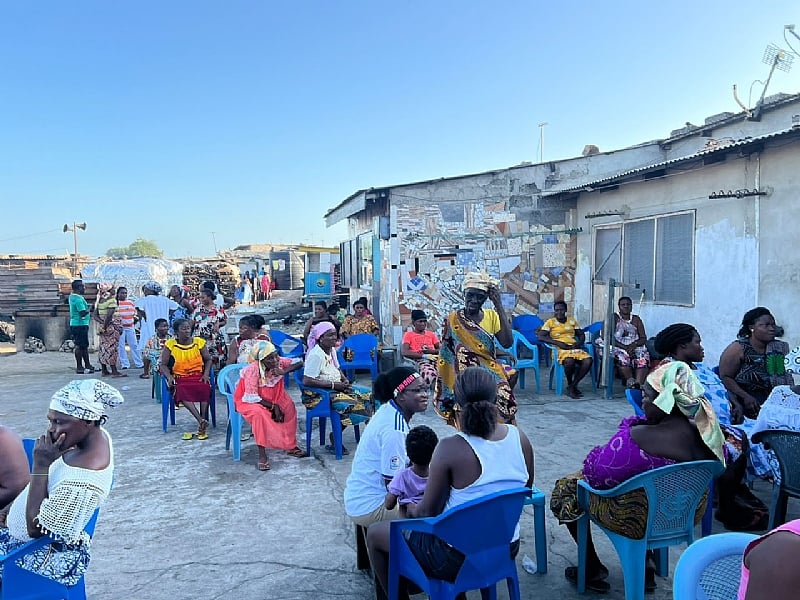The West Africa Regional Bosch alumni network has highlighted a critical issue concerning the socio-psychological effects of climate change on coastal communities, particularly in Shiabu, Glefe, a suburb of Dansoman situated in the Greater Accra Region. Funded by the Bosch Alumni Network, a recent study examined the impacts of climate-related changes on local women, especially fishmongers, who reported significant stress stemming from declining incomes. The research unveiled that reduced fish catches, a direct consequence of climate change, have severely impacted these women’s livelihoods, forcing them to cope with financial instability. Additionally, rising sea levels have led to the submersion of homes, exacerbating the hardships faced by these already vulnerable populations. Fishermen, struggling to maintain their livelihoods, are compelled to travel greater distances, which often involves venturing into neighboring countries, leaving their spouses with the burden of familial financial responsibilities.
The research, led by Roland Padi from the Bosch Alumni Ghanaian Research Team, underscored the unique vulnerabilities faced by coastal communities, which often report a range of socio-economic challenges accompanying environmental shifts. Beyond the tangible environmental impact, the mental health of these communities has also taken a significant hit due to deteriorating living conditions, which were emphasized in the findings. Women in the area noted alarming patterns in weather changes, such as altered rainfall patterns, increased water pollution, and rising sea levels that have disrupted their traditional ways of life. Consequently, these environmental changes have engendered psychological distress among the population, marking a dual crisis.
To address these pressing issues, the study recommended the establishment of social intervention programs designed to provide psychological support and alleviate the mounting pressures stemming from climate change. Additionally, there is a grave need for enhanced awareness concerning climate impacts, with a specific call for the completion of sea defense projects and the provision of waste management solutions, such as dustbins. Sylvia Hagan, Project Lead of the Climate Mental Health Initiative, emphasized that collaborative frameworks involving policymakers and local communities are essential for creating impactful solutions to mitigate the socio-psychological toll of climate change.
In acknowledgment of these challenges, research lead Mrs. Emmaryn Leuzzi, who also directs the Bosch Alumni Network in the West Africa Region, shared that the emotional strain faced by many women has intensified. The absence of partners, who are often away for prolonged periods seeking better fishing opportunities, has caused heightened irritability and aggression among women. This situation is further compounded by familial challenges, such as child malnutrition and lack of education, amplifying the stress on women who must navigate these complexities largely on their own.
The Bosch Alumni Network’s initiative not only focused on collecting impactful data but also prioritized psychological support for these women, offering a lifeline to combat feelings of distress, anxiety, and aggression rooted in climate-related challenges. Through these interventions, the network aimed to foster both immediate relief and long-term resilience among affected communities. Furthermore, practical steps were taken to improve local infrastructure, such as providing dustbins for better waste management and bowls to facilitate household and fishing activities, supporting healthier community practices.
Overall, the findings of this study illuminate the undeniable link between climate change and its profound socio-psychological effects on women in coastal communities. The Bosch alumni network’s efforts in addressing these multi-faceted challenges exemplify the importance of targeted research, community engagement, and the need for collaborative action between policymakers and affected populations. There is a clear recognition that overcoming the impacts of climate change requires more than just environmental intervention—psychological support and improved quality of life for these communities must also be integral components of any effective response strategy.














